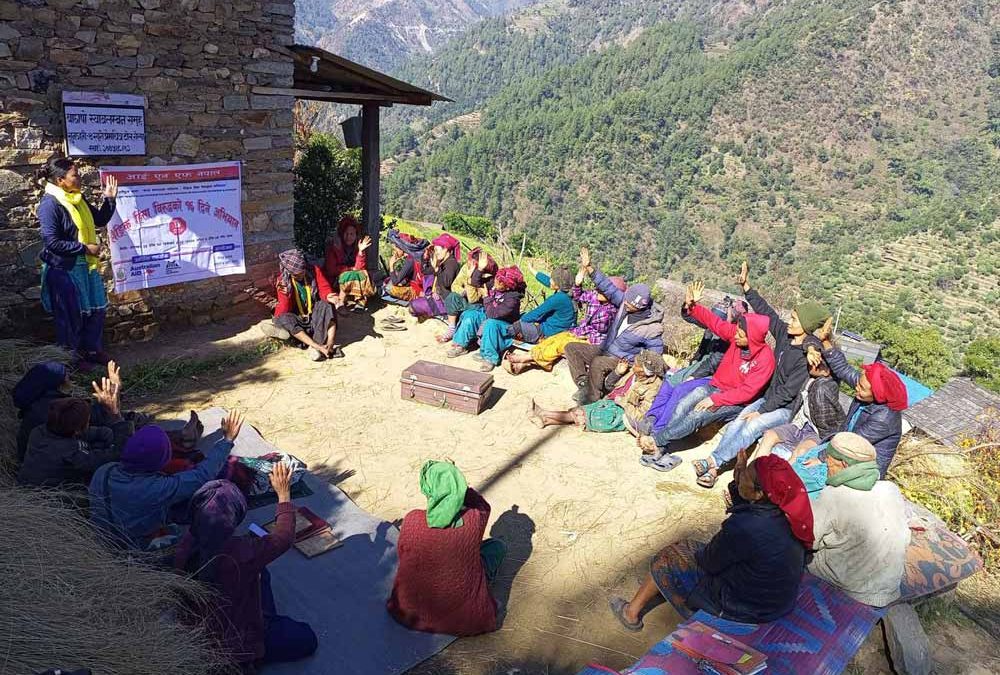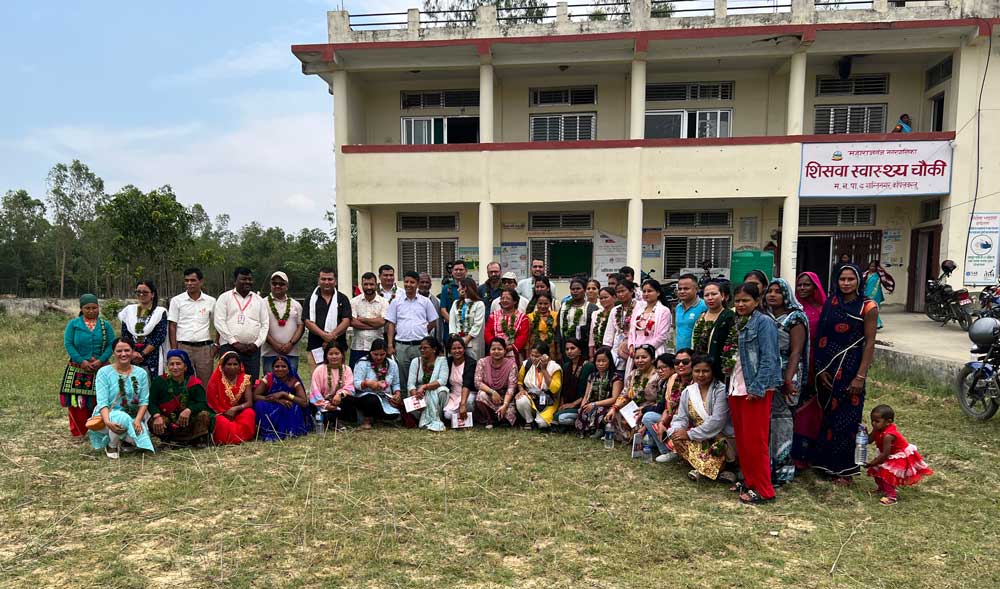The POWER Project, which stands for Promotion of Women Empowerment and Rights Targeting to Rural Women, is a collaborative initiative among LWF Nepal, ADRA Nepal, Caritas Nepal and INF Nepal. The Project’s primary objective is to enhance women’s status in Nepal, enabling them to make meaningful contributions towards good governance and inclusive development.
Funded by the Australian government and supported by Australia-based partners, the four consortium organisations in Nepal are responsible for implementing, monitoring, evaluating and joint advocacy efforts to make everyone accountable for women’s rights. The Project is rooted in collaborative activities among consortium partners that promote gender equality and share good practices.
The Project has already completed its first phase from 2018–2021, spanning three years, and is now in its second phase. It is being implemented in ten districts of Nepal, including five working districts of INF Nepal (Jumla, Bajura, Rolpa, Mugu and Kapilvastu).
The POWER Project is aligned with Sustainable Development Goal – 5 (Gender Equality) as a global and national target set by the Nepal government in line with its national strategy. Gender Equality and Social Inclusion (GESI) is one of the major cross-cutting issues of INF Nepal. Through the Project, INF aims to help establish a gender-based, violence-free, justiciable, and equitable society.
Some of the achievements of the last ten months (July 2022 to April 2023):
- 310 Women Human Rights defenders (WHRDs) from self-help groups are selected, trained and mobilised to sensitise and make communities aware of gender and social issues.
- WHRDs mobilisation guideline is prepared, oriented and distributed to WHRDs to ensure their safety and limitations.
- 9 male gender focal persons are selected, trained and mobilised at Kapilvastu.
- 20 Gender-Based Violence (GBV) related cases, including domestic violence, polygamy, and child marriage, were identified and referred to the concerned authority for further process.
- 27 events, including street drama, school-level orientation, rally, Deuda song competition etc., were conducted to increase awareness, strengthen existing mechanisms and increase people’s participation in ending violence against women on the occasion of 16 days of activism against GBV.
- Communities are doing coordination with local government for day celebrations and organising mass advocacy campaigns on gender and social issues. For example, in initiating the gender network from Rolpa, the ward office of Syuri allocated NPR 50,000, and the ward office of Bahirigam allocated NPR 25,000 for the International Women’s Day celebration.
- Policy mapping at the Rural Municipality level in Jumla and Rolpa is conducted to identify the existing GESI-related policies, guidelines, framework at the local level and women-friendly budget.
By empowering women in rural areas, the POWER Project is making a significant impact, promoting gender equality and enhancing the overall well-being of Nepalese communities.
Annual Review Workshop
The three-day annual review workshop of the POWER project has been concluded in Manigram, Rupandehi, from 3–5 May. During the review workshop, participants also had the opportunity to visit the community and observe the work carried out by the INF Nepal Kapilvastu Branch on gender issues. Forty-seven participants, including 19 WHRDs from the consortium organisations and implementing partner organisations, participated in the workshop. INF Nepal managed the workshop.
This article is written by Shakuntala Subedi, INF Nepal’s Gender Officer.




